Journalist Anna Miyasnykova, who works for the Nakypilo publication, was injured during a shelling of the center of Kharkiv, and this is the first thing she wants to tell everyone from her hospital bed. The second is the improper condition of the shelters in the city. When it is impossible to call for help because there is no connection available in the shelter, it gets scary.
“We met Anna a few years ago. We work in Kharkiv, but it so happened that we met in Kyiv at some competition. And when the message about her injury appeared on the newswire, I lost my spirit. Anna is now in the hospital; she has a fracture of the lateral bone. The fragment passed almost through but caught on that bone, breaking it. The explosion was 30 meters away from Anna… We agreed that as soon as the cast is removed and she regains her strength, we will gather a group of media people and again take a first aid course. We spoke on the phone, and I really want her, wounded, to be heard by others,” said Hanna Chernenko, the co-coordinator of the Kharkiv Journalists’ Solidarity Center (JSC).
Anna Miyasnykova shared her feelings after what happened.
In the first minutes, it stuns, and then you act as taught in the courses
– When you see how you are bleeding, when you feel how wet and thick it is, and you rub it in your fingers – this is a feeling that will stay with me forever.
I am uncomfortable that there is much more grief, and here, there is so much attention to me. In Kharkiv, a few hours before my injury, a child and his mother were killed in the shelling under the rubble of a house, and I only had a fracture… And everyone asks me how I am. Someone has a broken life, and I only have a leg…
But if my injury has already become public, I would really like to emphasize how important it is to take first aid courses for civilians and carry a first aid kit with you. At least I had a tourniquet and an Israeli bandage with you. And the main thing is to be able to use it. The most basic thing is to be able to stop the bleeding because, without it, you can die in a few minutes.
If I hadn’t taken the first aid training, where you practice from the beginning, what and how to say when you call for help, what to do first – find a safe place and put on a bandage, I could get confused. And if you do not orient yourself, if you are in shock, then there will be a tragedy. Knowing and being able to can really save your life. I remember the first minutes after the injury: you are stunned, you are very disoriented. But then the animal instinct of preservation – it turns on, and you don’t think what and where happened. You think: there was an explosion, and I have to leave the epicenter. Then, you follow the steps taught in first aid courses, find a safe place, and call for help.
I have taken such courses four times. This knowledge will never be superfluous. When the russians bomb Kharkiv randomly and all the districts, you never know where a missile or a shell hits and whether it will hit your house or the place you are at. Or, like it was in my case while walking down the street.
This is Kharkiv… And it never stops with one explosion here
I was just going home. We stayed in the newsroom that evening. The first explosion occurred 30 meters from me. It was only later that I was able to estimate the distance. I saw a flash and a very loud sound, and like in slow motion, I was covered in soot and got to feel that my leg hurt. I still didn’t know what happened. I see glass slowly falling from the windows next to me, and I was lucky; I was on the corner of the building, if I had been a little further, all the windows from five floors would have fallen on me.
You can run with a fracture…
After the explosion, I realized that I had to run away. This is Kharkiv; there is no such thing as the russians shelling the city with one missile. And I ran behind the house to look for shelter, started calling the newsroom to report what had happened, that an explosion had taken place nearby, that I was injured and would not be able to work on the newswire today.
I hobble to cover, record a voicemail, and there’s a second explosion. I screamed and ran and stopped the recording.
Then someone asked my colleagues, how can you run with a fracture? I don’t know how, but you can run with a fracture if it explodes like that…
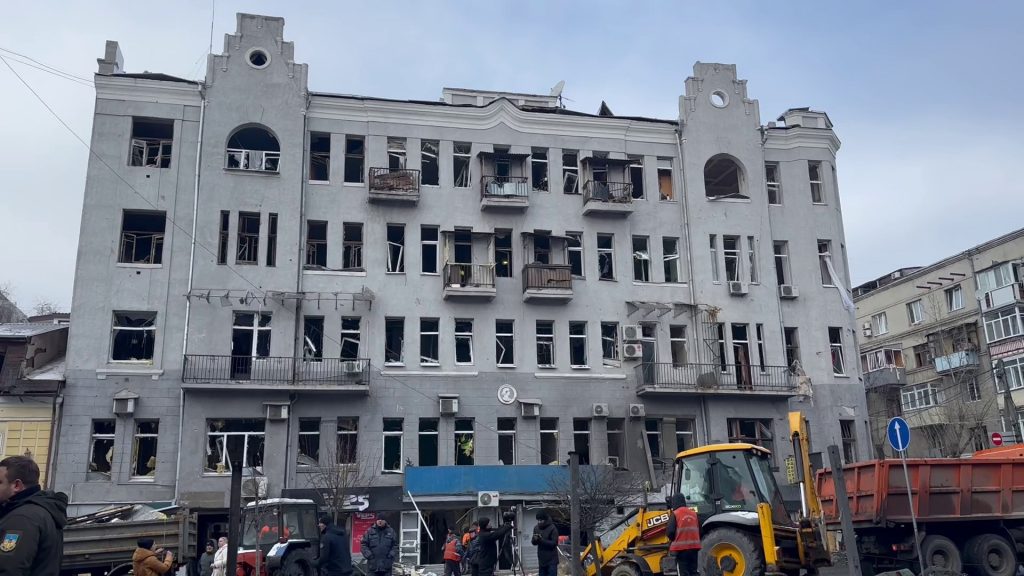
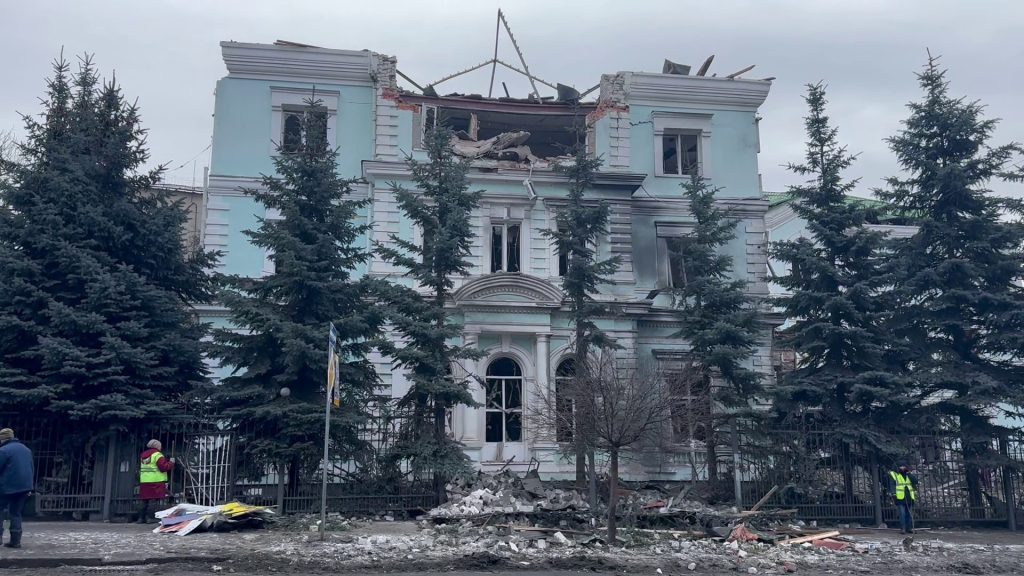
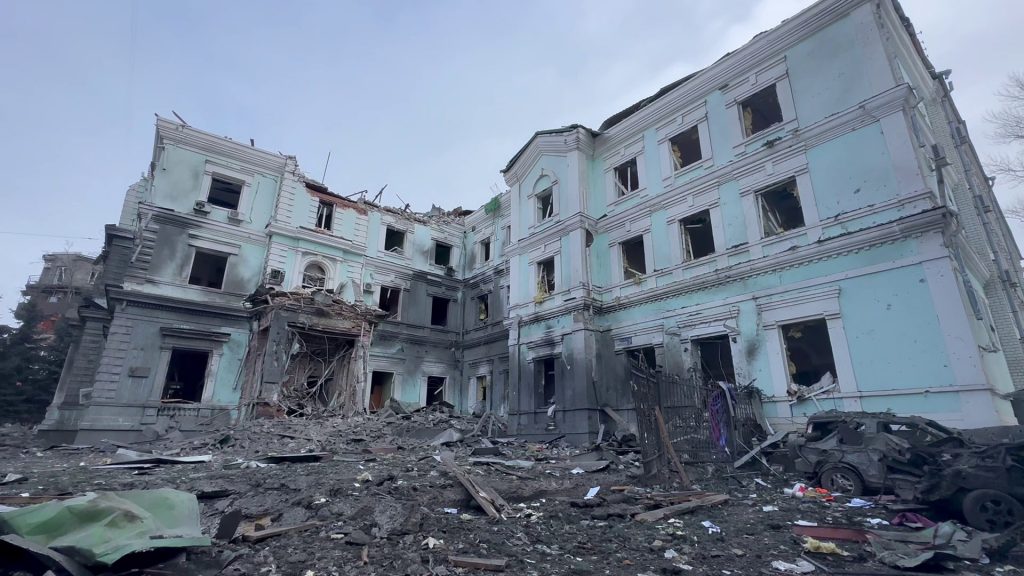
I understand that no one knows which basement I’m in
I want to write about the state of shelters. Because when you run to the basement and realize that you are bleeding, but there is no connection… I did not call the police; I was able to call the ambulance, but I gave them the address seven times. I was simply not heard. The connection was interrupted, and I was bleeding. And it’s good that I understood what and how to tell the doctor. Because when I took medical courses, we were taught how to report correctly and what to report, in which order.
I had a hemostatic bandage with me; I wrapped my leg to stop the bleeding. When they [the authorities] say that shelters are ready, that is not true. The one I went down to had only a bench, and that was it. And the mobile connection does not work there. I understand that no one knows where I am, which basement I am in. And if I had gotten lost or had a more complicated injury, they wouldn’t have found me.
I miraculously called my colleague and friend. He was the first to reach me. I heard an ambulance, and with pain and a feeling that my leg was getting more and more numb, I got out of the basement. I thank the police officers who took me to the ambulance. And then they took me to the hospital.
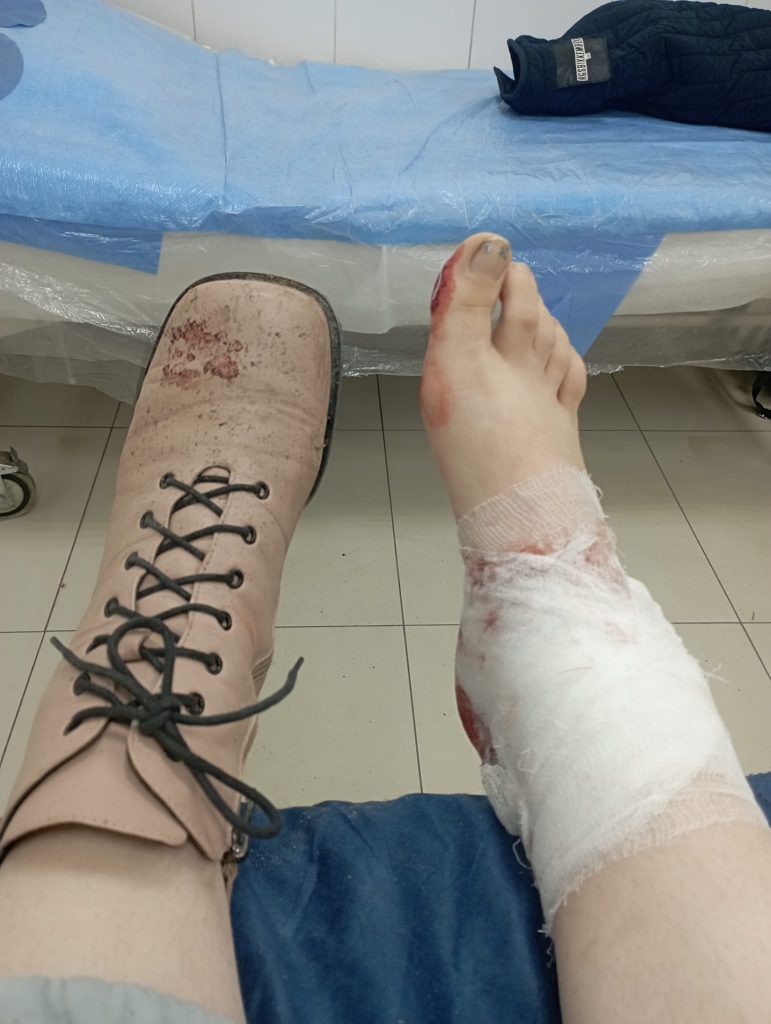
I was lucky
I feel surprisingly well. I have an affected lateral bone – a fracture. The fragment was pulled out; sutures were applied. I am staying in the hospital. The cast will be removed in about a month and a half. From the positive smile of the doctor, I understand that everything is going according to plan. I was lucky.
For a day, I felt some uplift. There was strength to text with a lot of people. I was surprised and pleased in a good way by how many people wrote to me. And even the people I met before at some events or took a comment from wrote to me. It is incredibly nice when you are remembered not only by your friends but also by those you take interviews with. It is about the fact that we do work not just to show something but to do something important for these people.
Colleagues say that I should not work yet and have some rest. We have this internal meme in the newsroom that when I’m on duty, something is bound to happen. But this time, the russians did not wait for my shift and shelled the city earlier. And I’ve already been hit by that missile debris… I’m trying to rest, but, to be honest, I still have problems with sleep. During these two days, I slept a couple of hours. And that’s all.
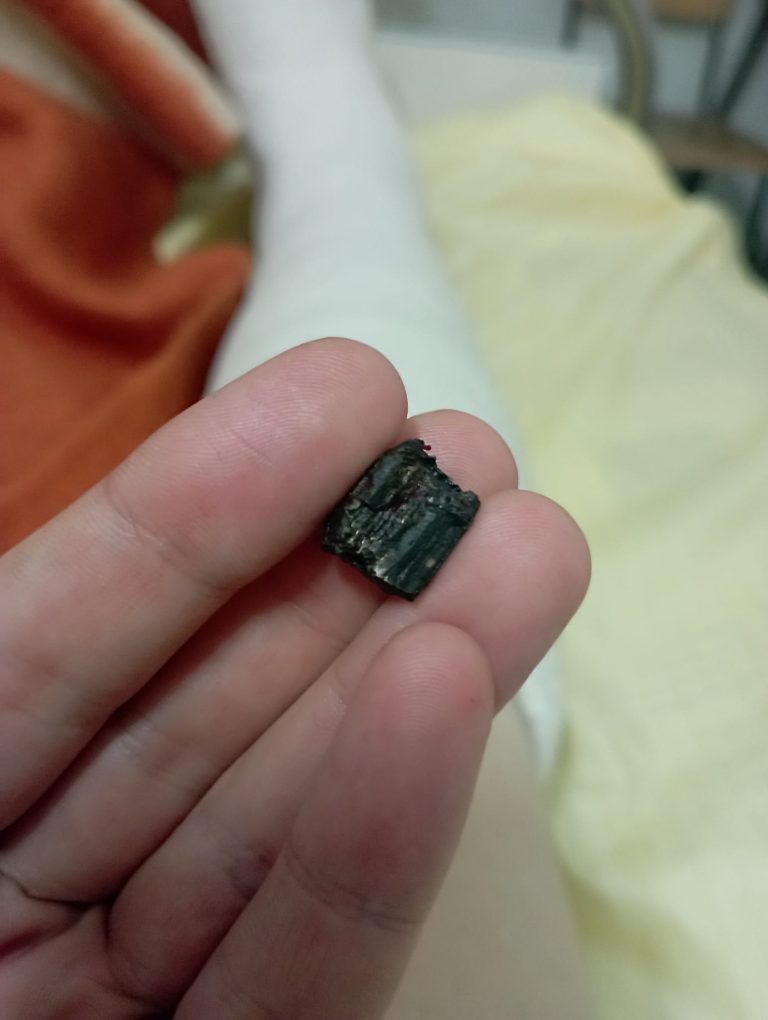
Call the Kharkiv JSC at 093 813 75 44 (Anna Chernenko, the Kharkiv JSC coordinator)
ABOUT JSC
The Journalists’ Solidarity Centers is an initiative of the NUJU implemented with the support of the International and European Federations of Journalists and UNESCO. The initiative is designated to help media representatives working in Ukraine during the war. The Centers operate in Kyiv, Lviv, Ivano-Frankivsk, Chernivtsi, Zaporizhzhia, and Dnipro and provide journalists with organizational, technical, legal, psychological, and other types of assistance.
ABOUT UNESCO
UNESCO is the United Nations Educational, Scientific, and Cultural Organization. It contributes to peace and security by promoting international cooperation in education, sciences, culture, communication, and information. UNESCO promotes knowledge sharing and the free flow of ideas to accelerate mutual understanding. It is the coordinator of the UN Action Plan on the Safety of Journalists and the Issue of Impunity, which aims to create a free and safe environment for journalists and media workers, thus strengthening peace, democracy, and sustainable development worldwide. UNESCO is working closely with its partner organizations in Ukraine to provide support to journalists on the ground.
The designations employed and the presentation of material throughout this digest do not imply the expression of any opinion whatsoever on the part of UNESCO concerning the legal status of any country, territory, city, or area or its authorities or concerning the delimitation of its frontiers or boundaries.
The authors are responsible for the choice and the presentation of the facts contained in this digest and for the opinions expressed therein, which are not necessarily those of UNESCO and do not commit to the organization.
Kharkiv JSC

 THE NATIONAL UNION OF
JOURNALISTS OF UKRAINE
THE NATIONAL UNION OF
JOURNALISTS OF UKRAINE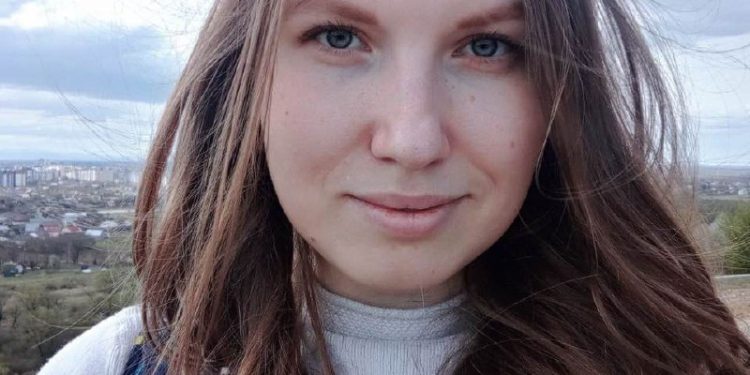
















Discussion about this post